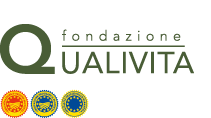
The Economist
In 1925 Ron Buholzer’s family left Switzerland and settled in lush, green, rural Wisconsin. Here, like so many Wisconsinites, his family started to make cheese. Since then four generations of cheesemakers have worked in the family firm. Their most popular product is feta, a crumbly cheese that goes well in Greek salads. Mr Buholzer worries that he may soon be banned from selling it, because the European Union is trying to “claw back” food names that Americans consider generic but which Europeans believe should only apply to products made in specific bits of their continent. That includes feta, Parmesan and maybe even bologna. Already Mr Buholzeris barred from exporting his feta to South Korea if he calls it “feta”. Also, any new feta products sold in Canada that are not from Greece will soon have to be called “like” orin the “style” of feta-and no t use Greeksymbols. The Eu is demanding protection for145 food names, including feta, asiago, Gorgonzola, munster and fontina. American cheesemakers are unwilling to accept this as a feta accompli. On the contrary, they are preparing for a food fight. A group has sprung up to fight the European threat: the Consortium for Common Food Names.
Negotiations over the Transatlantic Trade and Investment Partnership, a proposed free-trade deal between the Eu and America, may stumble over the issue. The Eu, meanwhile, is leaning on governments everywhere to stamp onfoodmakers who purloin European names. Americans are unimpressed, They see all this as an attempt to erect trade barriers and raise prices by reclaiming words that have long since passed into general use. Many members of Congress have urged Barack Obama’s administration to resist the Europeans’ demands.


